I don’t know what to do right now except share this
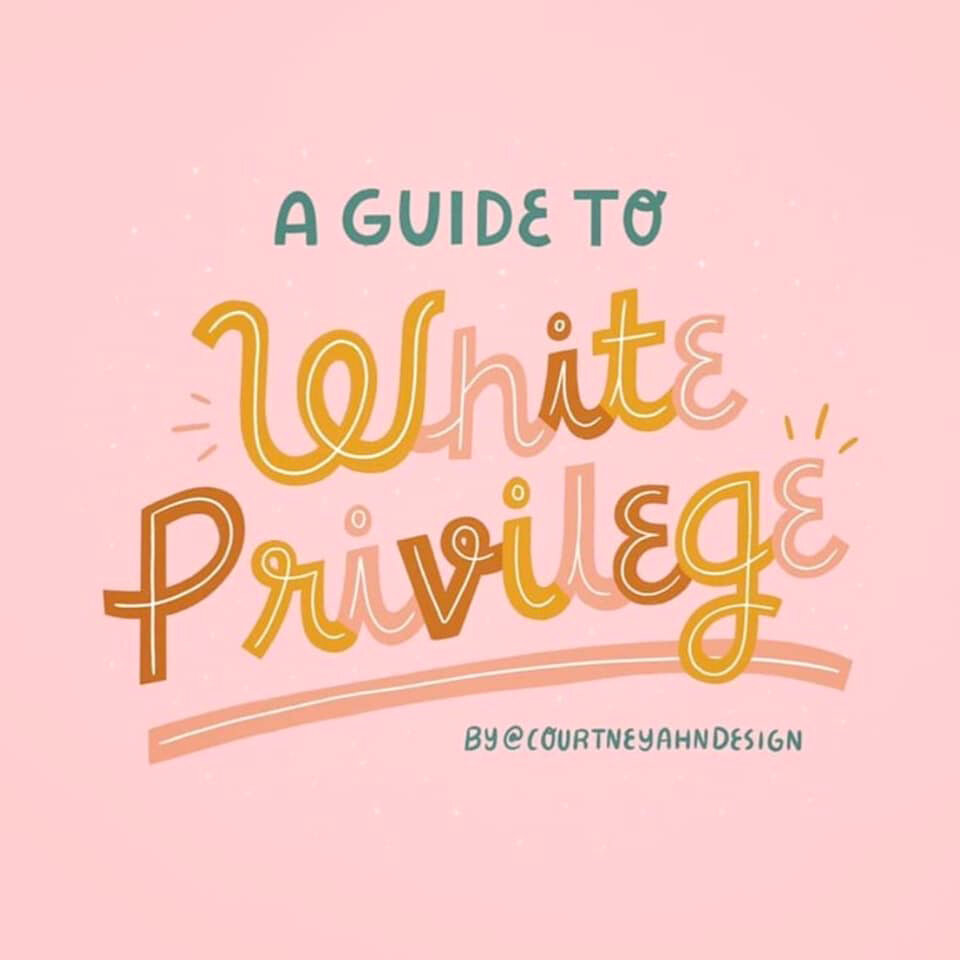
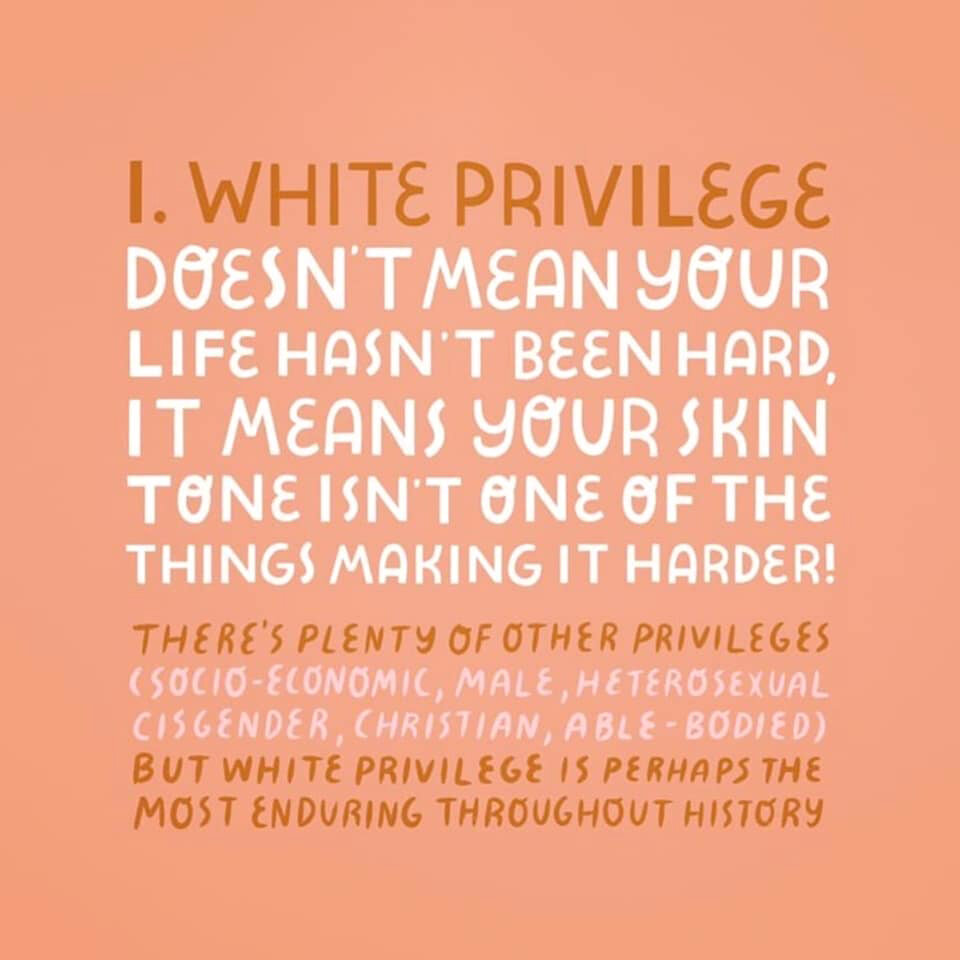
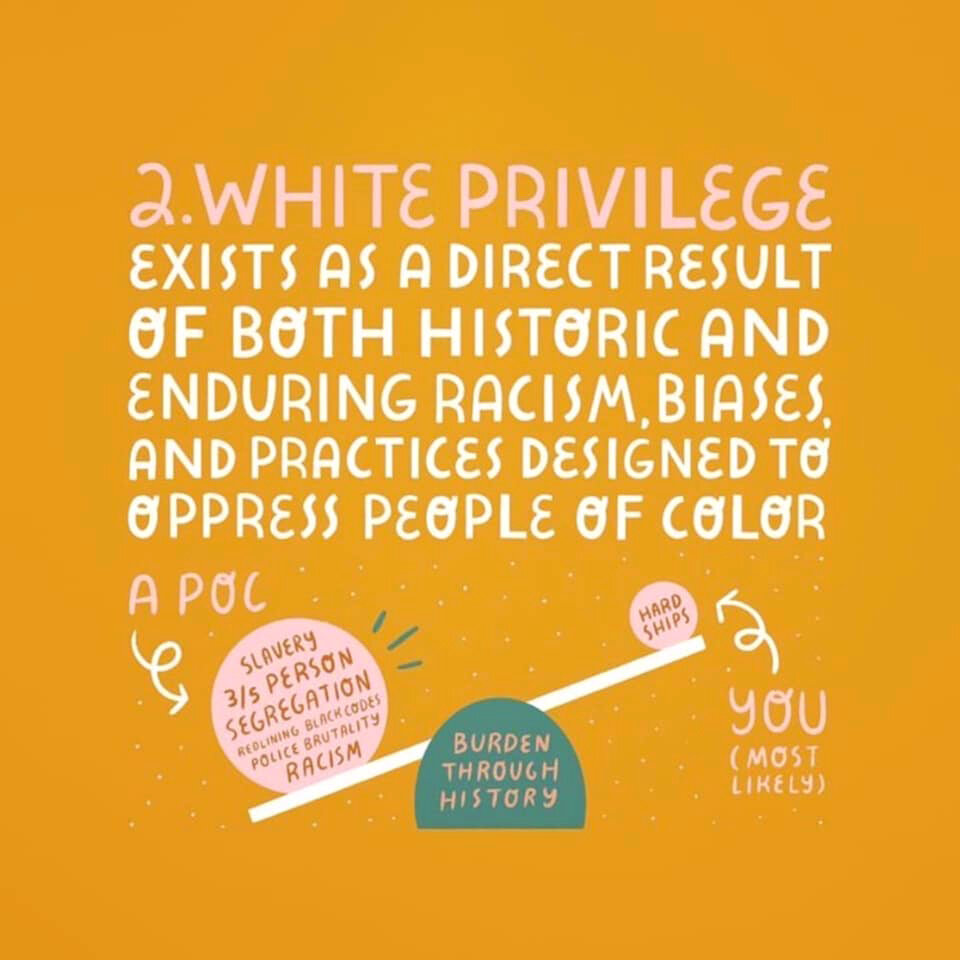
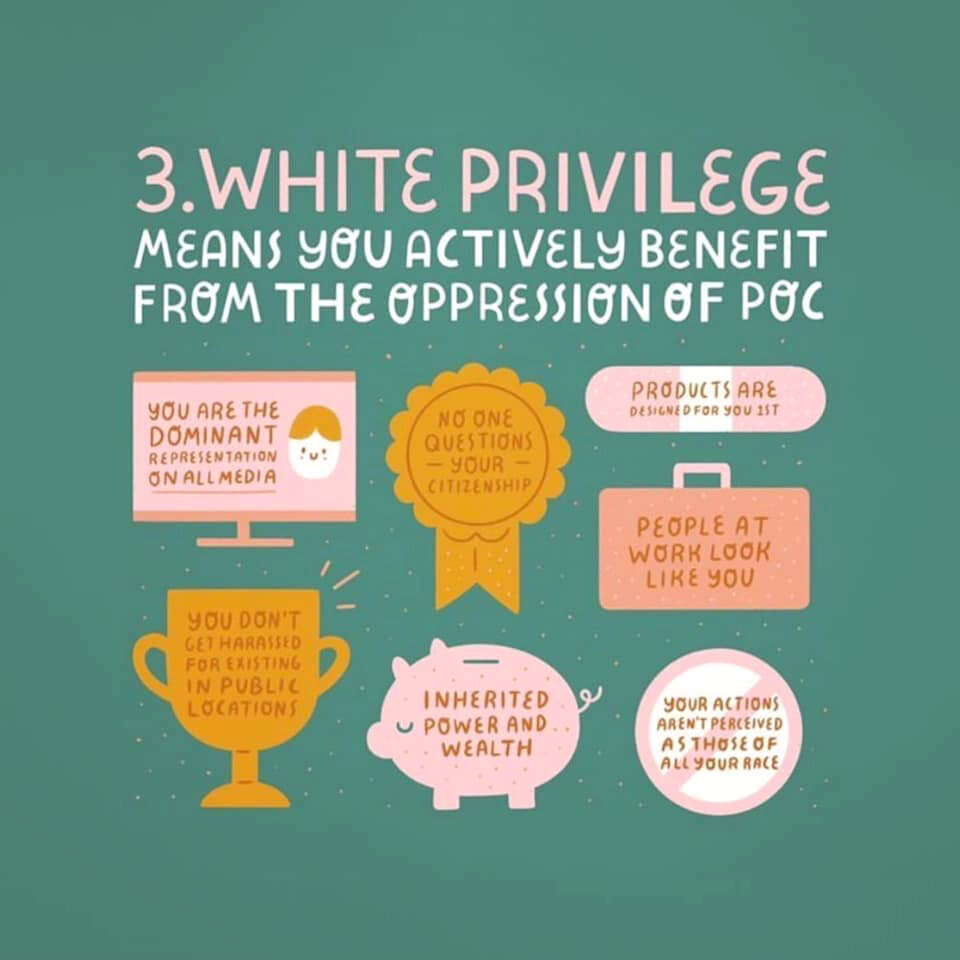
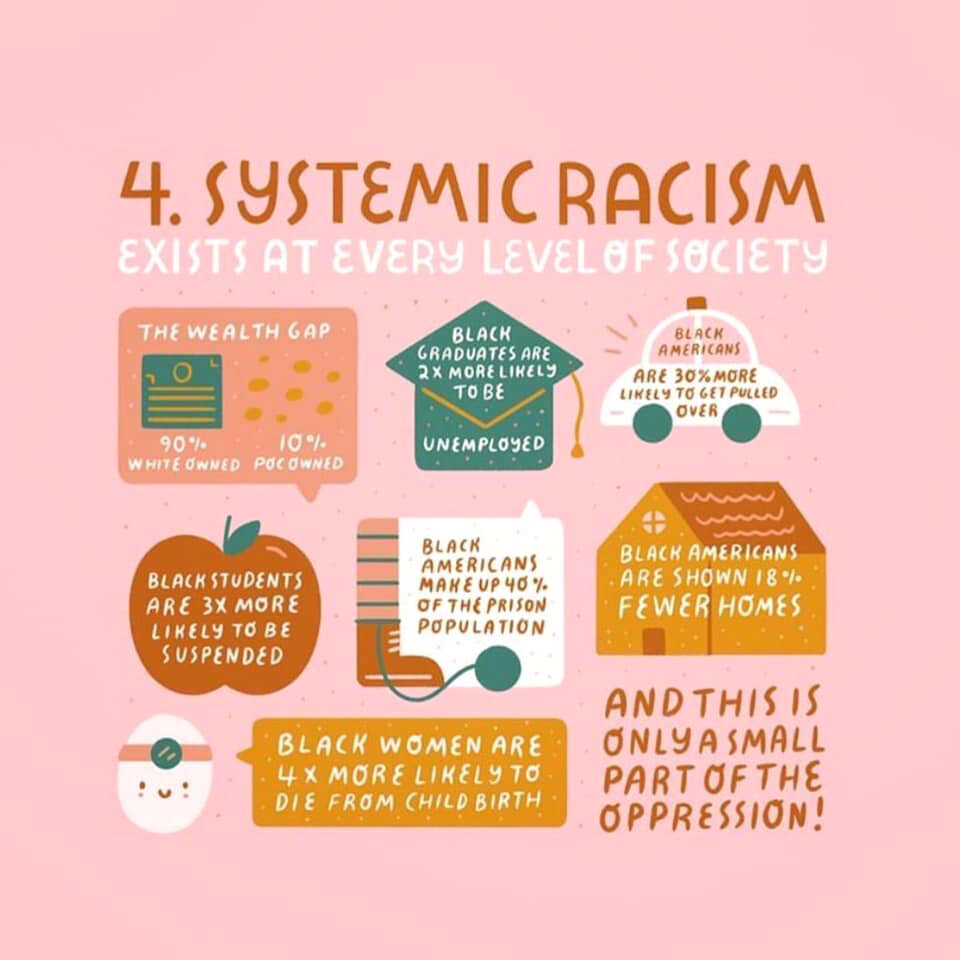
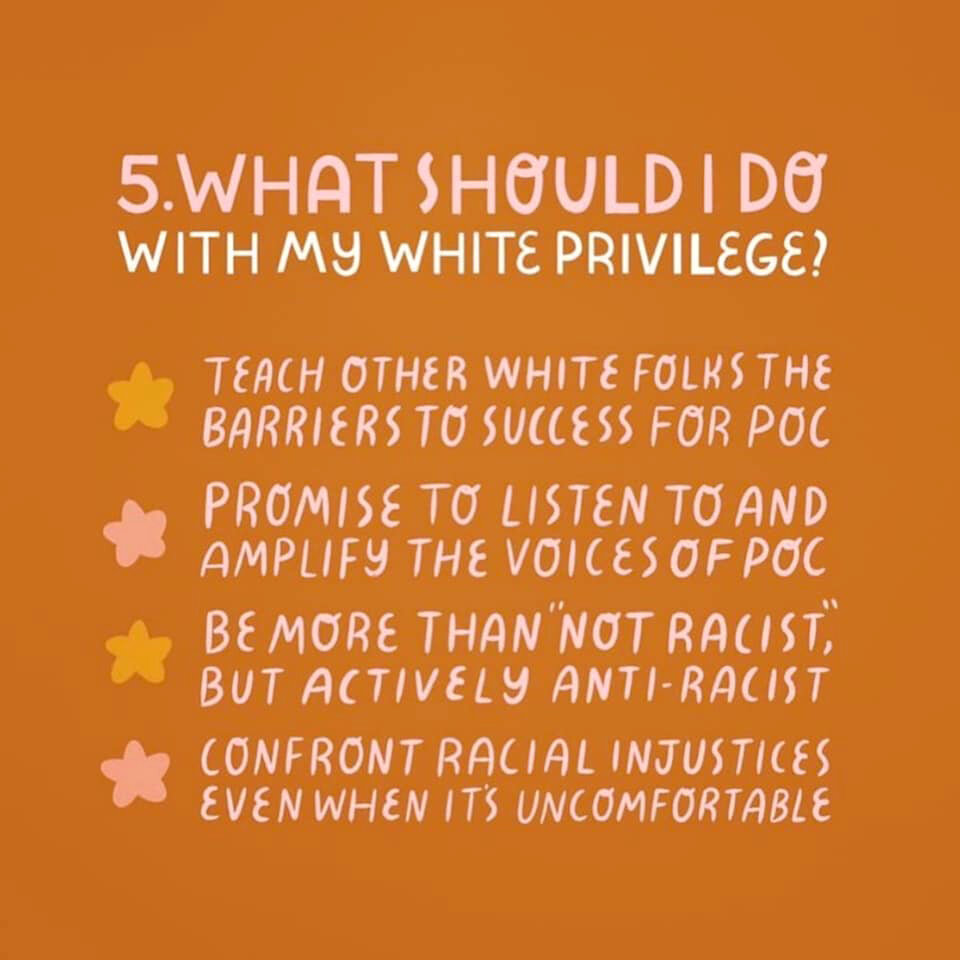
I loved this A Guide to White Privilege by Courtney Ahn Design—She says it better than I ever could, so I wanted to share it with you. You can follow her on IG @courtneyahndesign
The following is my story and my best contribution to right now.
By Christine Kell
There’s a lot of totally f-ed up stuff happening in our country right now
The United States is not feeling so “united” right now.
We are surrounded by unequal justice and unnecessary killings.
So, I wanted to share my story with you, knowing that I have zero answers on how to fix what’s going on in our country right now, or maybe my one answer is to tell each other stories and to try to educate each other in whatever ways we can.
Me: I grew up a skinny, tow-headed white girl in a very “red” county in central California.
My dad told racist jokes about black people, while my mom was (thankfully) enlightened—teaching me that all humans were equal and deserved equal respect. She had close black friends in an area that had very few blacks.
P.S. It will be no surprise to you that my parents’ marriage didn’t last long.
My first race conversation:
I had a boyfriend in 5th grade, Tony Perez
(not his real name, of course).
He was cute and nice and funny—and he must have thought I was too, because one day, he said, “Will you go with me?” I said, “Yes!” And, poof~! We were boyfriend and girlfriend. And I was so excited.
He wanted to play with me during every recess and snack break. And he came over to my house after school.
Every girl’s dream, right?
Well... I felt suffocated. Apparently, I needed more “me” time.
So, one day after school, he came over to my house unannounced.
I must have had a relaxing afternoon of watching Three’s Company or Alice planned for myself, because as soon as he walked in all sweet and excited to see me, I blurted out:
“We have to break up!”
He was shocked and hurt, asking me: “What?! Why?”
I said, “We just do. We have to break up. I’m sorry.”
(I didn’t know why myself—I couldn’t articulate that he was suffocating me, coming over too often, wanting too much of my time.)
He got very upset and yelled, “Is it because I’m Mexican?”
And I was like, “What?! You’re Mexican? No! I don’t care about that. We just have to break-up now.”
His “Mexican-ness” was totally off my radar—he was just Tony.
But I myself didn’t understand why I had this urgent need to break-up with him. So I left him with no real explanation except that we weren’t right for each other.
The poor guy.
I was in 5th grade—I was totally ill-equipped to ask for “what I needed” (a little space), so my solution was to break-up.
Of course, I didn’t know that yet. And he left very confused.
I felt bad for weeks.
As a white, blonde girl growing up in that red part of California, I could not have possibly understood what this small brown-skinned boy must have experienced in his short 11 years.
How could I understand why his first response to my breaking up with him was, “Is it because I’m Mexican?”
Maybe he hadn’t explicitly experienced the racism yet himself, but he may have heard it discussed in his family or just felt it subconsciously. I don’t know.
We can never truly understand what other people have gone through.
I’ve been thinking about this a lot with all the heart-breaking deaths in the news over the past couple of months:
George Floyd strangled by a police officer after an alleged “forgery”
Breonna Taylor shot at least 8 times in her own apartment
Christian Cooper falsely accused of attacking Amy Cooper (no relation, by the way)—you can find a video of her very dramatic 911-call performance
Ahmaud Arbery shot for jogging in Georgia
and so many other black-skinned people being choked by white supremacy and police brutality
I have no solutions to offer.
But I can do my best to make more people aware of what is happening in this country and do the best I can.
So, first I wanted to share the artfully illustrated A Guide to White Privilege by Courtney Ahn Design—see slideshow above.
I used to think, “I haven’t experienced white privilege—I grew up poor, getting my school cafeteria lunches and free milk paid for by the town. And I used Federal Pell Grants to go to college.”
But then I think about:
how my grandparents were able to help me pay for parts of college that the Pell Grants and part-time jobs didn’t cover,
how I have never been stopped and frisked for walking anywhere, and
how one time, I was given a fake $10 bill as change. When I turned around and later used it to pay for groceries, the guy simply told me it was fake and gave it back to me. I was surprised but then paid with other money I had. No police were called. And I was not choked to death for it.
So, yeah. I have experienced white privilege. And it’s OK to recognize that it’s something that has benefited my life.
Now that I see it, I can’t un-see it.
If you grew up in the United States, you grew up surrounded by white privilege. And you’ve absorbed it, consciously and subconsciously (from your parents, grandparents, society).
It doesn’t mean you agree with it or actively try to take advantage of it, but let’s all just stop pretending that it doesn’t exist or that it hasn’t seeped into your mind in small (or sometimes, big) ways.
It exists as a direct result of growing up in a white supremacist society.
It doesn’t mean that you’re racist or a Nazi, it just means that you grew up in a society that was founded on the ideals that men, and in particular, white men, were more important than women and/or other races.
Think: Women weren’t allowed to vote. Blacks were enslaved. We grew up in a society that was built to benefit straight, white men.
It’s not really debatable.
And I’m not saying straight, white men are bad. I’m just saying that those are the guys who built the society way back and they built in a way to put themselves as the top dogs.
Growing up in such a world, will impact our brains. We are constantly absorbing messages consciously and subconsciously about whose lives matter more—that’s just how the brain works.
This is true even if we were taught anti-racist, equal rights thinking from our parents. (Or in my case, my parent.)
The famous song from avenue q is true:
Everyone’s a little bit racist
It’s not a moral evaluation, it’s just a fact.
When we can just accept that the ongoing problem of unequal justice we’ve grown up with have seeped into our brains and made us all a little bit racist, we can know that it doesn’t make us bad people. It just makes us people with human brains.
Knowing that, you can show up consciously in the world.
You can consciously DECIDE how you want to take action, from a place of understanding yourself and others.
It’s OK to be uncomfortable and put your foot in your mouth. Just do your best.
Do you think writing this was easy? Do you think I’m not afraid that someone will take something I’ve written and twist it or misunderstand it? Sure! And, not everyone is going to agree with me (or with you).
Accept that your programming has made you a little bit racist. And that’s OK. You can still show up in the world in a mindful way.
Do the best you can.
It doesn’t have to be perfect.
